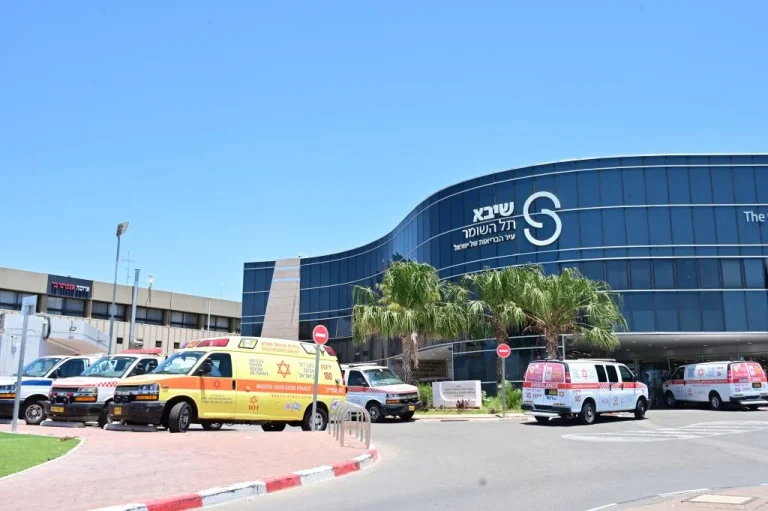Jerusalem, 7 August, 2025 (TPS-IL) — In a landmark achievement for regenerative medicine, researchers from Sheba Medical Center and Tel Aviv University have successfully grown human kidney organoids from tissue-specific stem cells, closely mirroring the process of fetal kidney development in the womb, researchers announced on Wednesday. The kidney structures matured in the lab over more than six months — making them the longest-lived and most stable lab-grown kidney organoids to date. This breakthrough opens the door to major advances in diagnosing birth defects, treating kidney diseases, and testing drug safety during pregnancy.
“This is the first time anyone has managed to grow a human kidney from tissue-specific stem cells that survives and matures in the lab for such an extended period,” said Prof. Benjamin Dekel, who led the study. Dekel is Director of Pediatric Nephrology and the Stem Cell Research Institute at Sheba’s Safra Children’s Hospital, and Director of the Sagol Center for Regenerative Medicine at Tel Aviv University. “We are actually seeing live how a developmental problem leads to kidney diseases that are seen in the clinic, which will enable the development of innovative treatments.”
The study was recently published in The EMBO Journal, a peer-reviewed medical journal.
Organoids — miniature, lab-grown versions of human organs — are powerful tools for studying human biology. Until now, kidney organoids created from pluripotent stem cells would begin to degrade after about a month, often containing cells from unrelated tissues that compromised experimental results. In contrast, the organoids grown in Dekel’s lab developed from kidney-specific stem cells, which only differentiate into kidney structures. This purity enables precise experimentation and long-term observation of kidney development as it naturally occurs in the womb.
“The process we observed corresponds with the stages of kidney growth in utero until about the 34th week of pregnancy,” Dekel explained. “The organoid formed key structures such as blood-filtering cells, renal ducts, and urinary tracts — providing us with a highly accurate and sustained model of the developing human kidney.”
The implications of the research are wide-ranging. One of the most immediate applications is in the study of birth defects. Using this model, scientists can manipulate genes and signaling pathways to observe how malformations arise in real time. “When we selectively blocked a certain signaling pathway, we saw how it led to a birth defect,” Dekel said. “This kind of live observation has never before been possible, and it’s a major step forward in understanding congenital kidney diseases.”
Another transformative application is drug safety testing. Because the organoid closely resembles a fetal kidney, researchers can use it to test how medications taken during pregnancy might affect kidney development. This provides a new way to screen for drug toxicity in utero — something previously limited by ethical and biological constraints.
The breakthrough also carries enormous potential for regenerative medicine.
“The fact that we can grow kidney tissue stem cells outside the body over time opens the door to regenerative medicine—that is, transplanting kidney tissue grown in the laboratory into patients, or alternatively using the signals the organoid secretes to repair or rejuvenate a damaged kidney,” Dekel said. In the future, such lab-grown tissues could help treat patients with chronic kidney disease, potentially delaying or even avoiding the need for dialysis or full organ transplants.
Beyond clinical use, the organoids provide researchers with a renewable and customizable model for basic science. Because the kidney stem cells can be derived from individual patients, scientists can create personalized organoids that reflect a person’s unique genetic makeup. These can then be used to test individualized treatment options or to study how specific mutations affect kidney function.
“This gives us an essentially inexhaustible source of different kidney cells and a much clearer understanding of their distinct roles in health and disease,” Dekel said.
The significance of this scientific milestone extends beyond medicine, said Prof. Dror Harats, Chairman of the Sheba Research Authority. “In recent years, we have witnessed attempts to distance Israel from international centers of influence, and scientific successes of this kind are a reminder that our contribution to medical and scientific research is significant and unquestionable.”































